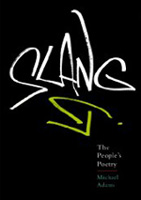Metaphysics intruding on morphology
I received this email message this morning:
Dear Student Systems User
There are currently problems with the main database server, affecting NESI, EUCLID, WISARD, STUDMI, etc.
IS are investigating, but we have no timescale for a resolution. Sorry for any inconvenience
Regards
Student, Admissions & Curricula Systems
You might like to reflect awhile on the linguistic lessons you can learn from this. Then read on…
Read the rest of this entry »


